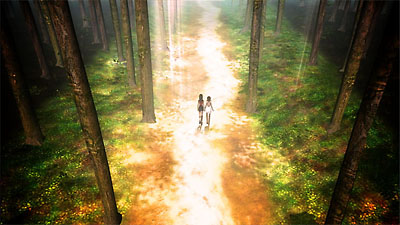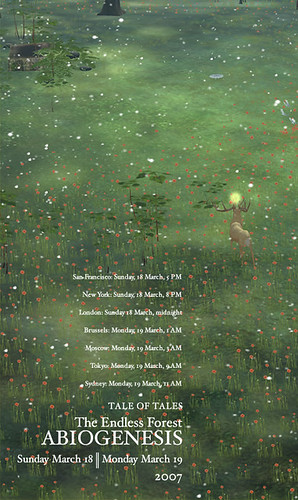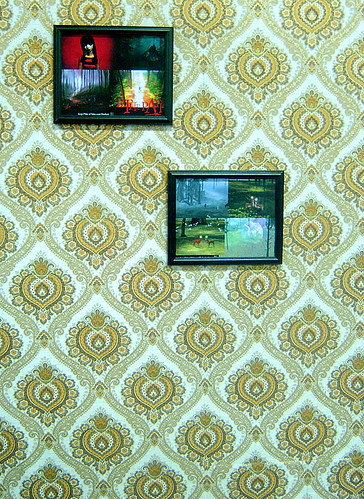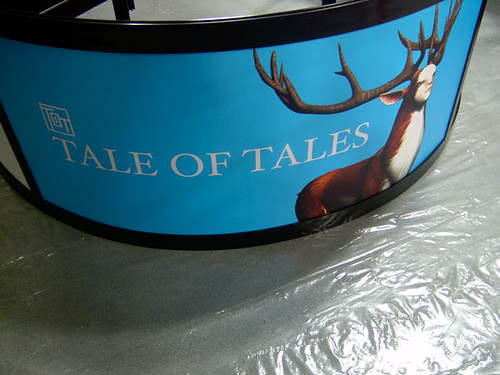Listening to Warren Spector’s plea for more story in games at the Game Developers Conference, I couldn’t help but think of The Endless Forest, and by extension of our plans for The Path. Somehow I feel that we have solved, or on the verge of solving, the issues that Mr. Spector, and the work of Michael Mateas and Andrew Stern quoted in his presentation, deal with. These thoughts are a bit awkward because what we do is nowhere near the technical and theoretical sophistication of what these gentlemen are dealing wih. And also because I can imagine that it would be hard for them to think of The Endless Forest as a narrative game.
We have a very different approach. I’m all for diversity, so I wouldn’t want to claim that our approach offers the ultimate solution for implementing narrative in games. But perhaps what we do is something like the third or fourth way that Warren Spector seemed to be looking for. It that sense, it would be typical if our approach comes from an unexpected place.
In several sessions in the conference, I felt that the way most game developers think about their work is very different from how we think. They think like engineers, like problem solvers. They seem to define everything as a problem that needs a solution. While I think we, at Tale of Tales, look at this medium as an enormous opportunity.
The attempts at solving the problem of story telling in games thusfar seem to have been just that. To think of storytelling as a problem and then to try to solve it. Whereas I think our approach is a more playful one where we kneed and mould the potential of the medium and almost accidentally end up telling stories. Probably because our hands and minds are inspired by stories. And some of this inspiration slides into the end result.
This almost sounds like mysticism but I don’t it is that romantic at all. What we are going for is effect. We do not look at storytelling (or gameplay for that matter) as something from another medium that needs to be translated to a new medium. Instead we observe the effect that the stories from the past have on us and we try the recreate that effect. In our case this is a highly subjective method but, if desired, this method could be objectified (though I have serious doubts as to whether it is a good idea to try and make art through objective methods).
I will admit that we have a broad definition of what constitutes a story. Probably because we are only really interested in the emotional effect. We get a similar “narrative effect” from a painting as we do from a theater play or a musical composition. Rather than imitate the structure of music in interactive media in the hope to achieve the same effect, we look at the tools and techniques that interactive media offer us -the things that they are good at- and combine them in a way that generates the desired effect.
And this is how The Endless Forest ends up being a story. It generates a similar effect in the player as hearing a story or seeing a movie. The feeling of having lived through something combined with having learned something meaningful, a lesson that applies to one’s own life. One could argue that this is not sufficient to constitute a story. But, even though I don’t think of myself as a modernist, I can’t help but think how similar this sounds to the claim that jazz or pop music is not real music. I don’t know. If something achieves the same result as something else, I guess it doesn’t mean that it is equal. But at least it’s a good substitute. Does it mater if the pill is a placebo as long as it cures the disease? Perhaps the placebo even tastes better.







